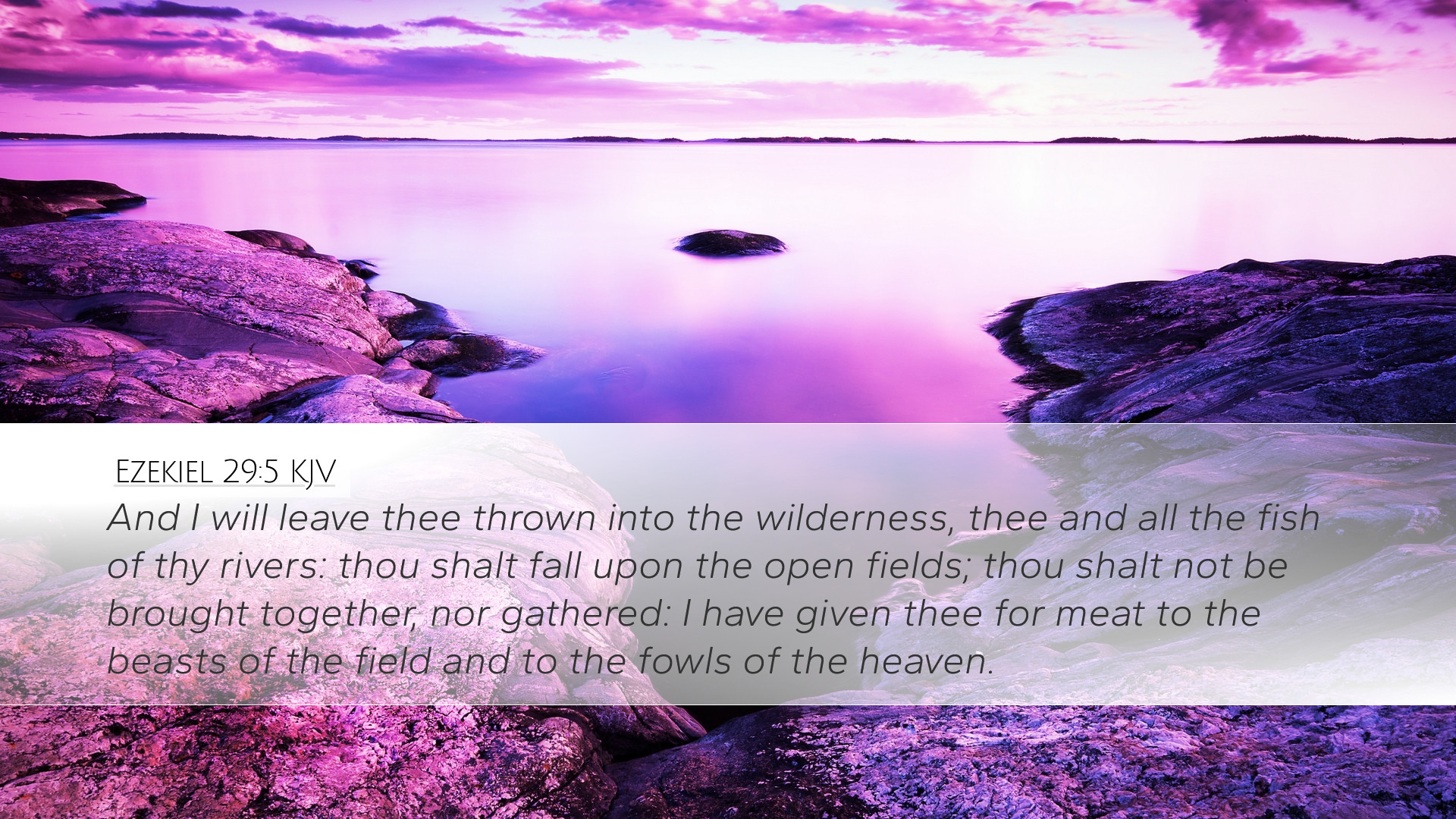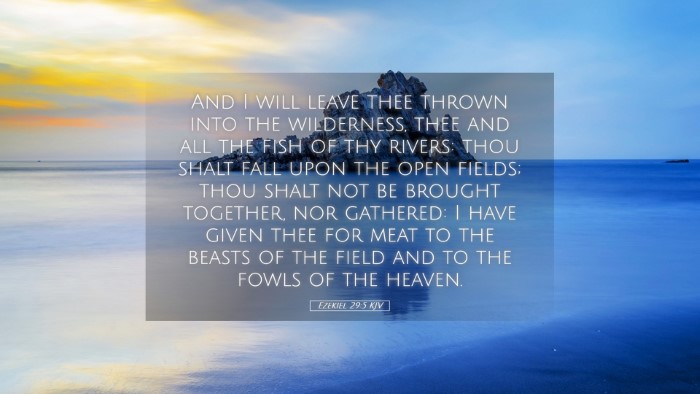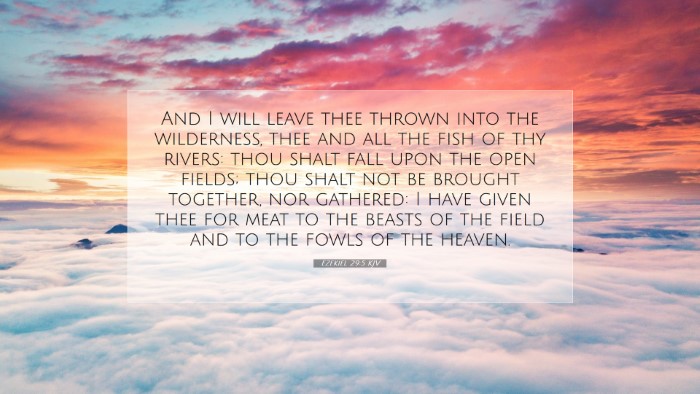Ezekiel 29:5 - Commentary and Insights
Bible Verse: "And I will leave thee thrown into the wilderness, thee and all the fish of thy rivers: thou shalt fall upon the open fields; thou shalt not be brought together, nor gathered: I have given thee for meat to the beasts of the earth and to the fowls of the heaven."
Overview
This verse is part of a larger prophecy concerning Egypt and its downfall, delivered by the prophet Ezekiel. It reflects God's judgment against Egypt, illustrating the dire consequences of its pride and idolatry. The language employed is vivid and evocative, painting a picture of desolation and defeat.
Contextual Analysis
The book of Ezekiel is situated during a critical period of Israel's history, marked by the Babylonian exile. This context is essential for understanding the prophetic messages, which often include oracles against foreign nations. Ezekiel’s pronouncements against Egypt serve to reaffirm God's sovereignty over nations and His justice in dealing with idolatry.
Historical Background
Egypt had long been a rival power to Israel and was viewed as a symbol of oppression and idolatry. Throughout the history of Israel, Egypt was often seen as a place of refuge but also as a snare leading to disobedience. In this verse, God speaks through Ezekiel about the impending judgment that will befall Egypt for its pride and failure to acknowledge Him.
Commentary Insights
Matthew Henry's Commentary
According to Matthew Henry, this verse conveys a strong message about the consequences of Egypt's arrogance and reliance on their own power. Henry highlights that God’s judgment is meant to humble what is high and bring low what is exalted. The image of the fish left in the wilderness illustrates that the resources of Egypt will become worthless, leading to desolation.
Albert Barnes' Notes
Albert Barnes emphasizes that the metaphor of the fish represents the people and rulers of Egypt who depended upon the Nile. The withdrawal of God's blessing will result in the ultimate decay of prosperity and power. Barnes notes that this passage not only reveals God's judgment but also serves as a reminder for all nations about the inevitable consequence of forsaking God's ways.
Adam Clarke's Commentary
Adam Clarke focuses on the symbolic interpretation of the wilderness as a place of isolation and abandonment, suggesting that it represents God's judgment manifesting in complete desolation. Clarke interprets the fowls and beasts as agents of divine judgment, indicating that Egypt will become food for those who devour the proud and the arrogant. He also points out the significance of unity in divine purpose, as Egypt, which once seemed unified in strength, would be scattered and rendered powerless.
Theological Implications
The implications of Ezekiel 29:5 resonate with themes of divine sovereignty, judgment, and the consequences of sin. The judgments pronounced against Egypt serve as a warning not only to Israel but to all who might mirror Egypt’s pride and idolatry. The theological stance here emphasizes that God is active in history, sovereign over nations, and does not overlook injustice and rebellion against Him.
Reflection for Pastors
This verse provides valuable insights for pastoral teaching about the importance of humility before God and reliance on His guidance. Pastors can encourage their congregations to reflect on the dangers of pride and self-reliance, reminding them of the need to seek God's kingdom first. The desolation of Egypt serves as a vivid reminder that apart from God, all will ultimately be fruitless.
Application for Students and Theologians
For students and theologians, this verse invites deeper exploration of biblical symbols and the nature of prophetic literature. The richness of the imagery used by Ezekiel can prompt discussions around how God's judgments manifest and how they relate to contemporary issues of pride and idolatry in modern society. The exploration of historical context can also enhance understanding of Ezekiel's audience and the broader implications for the Israelite community and surrounding nations.
Conclusion
Ezekiel 29:5 stands as a powerful declaration of God’s sovereignty and judgment. This verse calls us to reflect on the broader narrative of God's relationship with nations, the consequences of turning away from Him, and the ultimate hope found in obedience and humility before the Almighty. In a world rife with similar tendencies towards pride and reliance on human strength, this scripture serves both as a warning and as an invitation to seek unity and humility in the presence of God.


